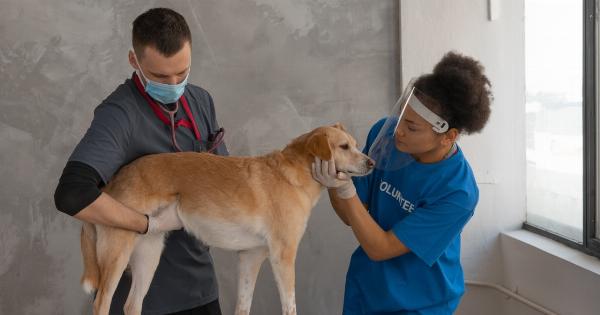As pet owners, we all love and cherish our furry friends. However, there is one thing that can quickly turn that love into frustration and discomfort – pet parasites.
These pesky creatures not only irritate our beloved pets but can also pose a threat to our own health. In this article, we will explore the most common pet parasites, their effects, and effective strategies to finally rid our pets and homes of these annoying pests.
The Culprits: Common Pet Parasites
1. Fleas.
Fleas are perhaps the most well-known and common pet parasite. These tiny, wingless insects live off the blood of dogs and cats, causing excessive itching, rashes, and skin infections.
Fleas reproduce rapidly and can infest an entire home if left untreated.
2. Ticks.
Ticks are another common pest that latch onto our pets, particularly when they venture into outdoor areas. These external parasites can transmit various diseases, including Lyme disease, to both pets and humans.
They can be challenging to remove entirely, as their mouthparts can remain embedded in the host’s skin.
3. Worms.
Intestinal worms, such as roundworms, tapeworms, and hookworms, are internal parasites that can wreak havoc on our pets’ health. These worms can cause weight loss, diarrhea, anemia, and even death in severe cases.
Some worm species can also be transmitted to humans.
4. Mites.
Mites are tiny arachnids that can infest pets and cause skin irritation, itching, and hair loss.
The most common type of mite affecting pets is the sarcoptic mange mite, which causes sarcoptic mange, a highly contagious and extremely uncomfortable skin condition.
The Devastating Effects of Pet Parasites
1. Physical Discomfort.
Pet parasites can make our furry friends extremely uncomfortable. They cause incessant itching, biting, and scratching, leading to skin irritation, wounds, and potential infections.
This discomfort can significantly impact the quality of life for our pets, making them miserable and restless.
2. Health Complications.
Aside from physical discomfort, pet parasites can also lead to severe health complications. Fleas, for example, can transmit diseases such as bartonellosis and even cause anemia in very young or small pets.
Ticks can spread Lyme disease, ehrlichiosis, and other diseases that affect both animals and humans. Worms can cause malnutrition, weight loss, and, in severe cases, organ damage.
3. Secondary Infections.
Constant scratching and biting due to parasite infestation can break the skin, creating open wounds that are vulnerable to secondary infections.
Bacteria can easily enter these wounds, leading to more severe health problems and prolonged healing times for our pets.
4. Transmission to Humans.
Several pet parasites are zoonotic, meaning they can be transmitted from animals to humans. Fleas, ticks, and certain types of worms can infect humans, causing a range of health issues from skin irritation and rashes to more severe conditions.
Effective Strategies for Eliminating Pet Parasites
1. Regular Veterinary Check-ups.
Scheduling regular check-ups with your veterinarian is crucial in preventing and addressing pet parasite infestations.
Vets can perform thorough examinations and recommend appropriate preventive measures, such as spot-on treatments, collars, or oral medications.
2. Flea and Tick Prevention.
Using veterinarian-recommended flea and tick preventives is essential in keeping these parasites at bay. Regularly inspect your pets for any signs of these pests and promptly address any infestations.
Additionally, maintaining a well-groomed yard and avoiding heavily tick-infested areas can reduce the risk of infestation.
3. Clean and Treat the Environment.
To eliminate pet parasites, it is essential to treat not only your pets but also your home environment. Thoroughly vacuum your house, paying special attention to carpets, rugs, and pet bedding.
Wash your pet’s bedding regularly in hot water, as this can help kill any parasite eggs or larvae hiding in the fabric.
4. Regular Deworming.
Regular deworming is crucial in preventing and controlling internal parasites. Your veterinarian can recommend the appropriate deworming schedule and medication suitable for your pet’s needs.
Additionally, cleaning up your pet’s waste promptly can help prevent the spread of worm eggs in your yard or living spaces.
5. Maintaining Good Hygiene.
Practicing good hygiene is not only essential for us but also for our pets. Regularly bathe and groom your pets to keep their skin and fur clean, removing any potential parasites.
Keep your pet’s living areas clean and free from feces, as this can attract flies and increase the risk of worm infestations.
Protect Your Pet and Your Home
Pet parasites can be incredibly irritating and pose risks to both our pets’ and our own health. By implementing effective preventive measures and promptly addressing any infestations, we can finally defeat these irritating pests.
Remember, regular veterinary care, proper hygiene, and a clean living environment are the keys to keeping your pet parasite-free and ensuring a happy, healthy life for both you and your furry friend!.






























